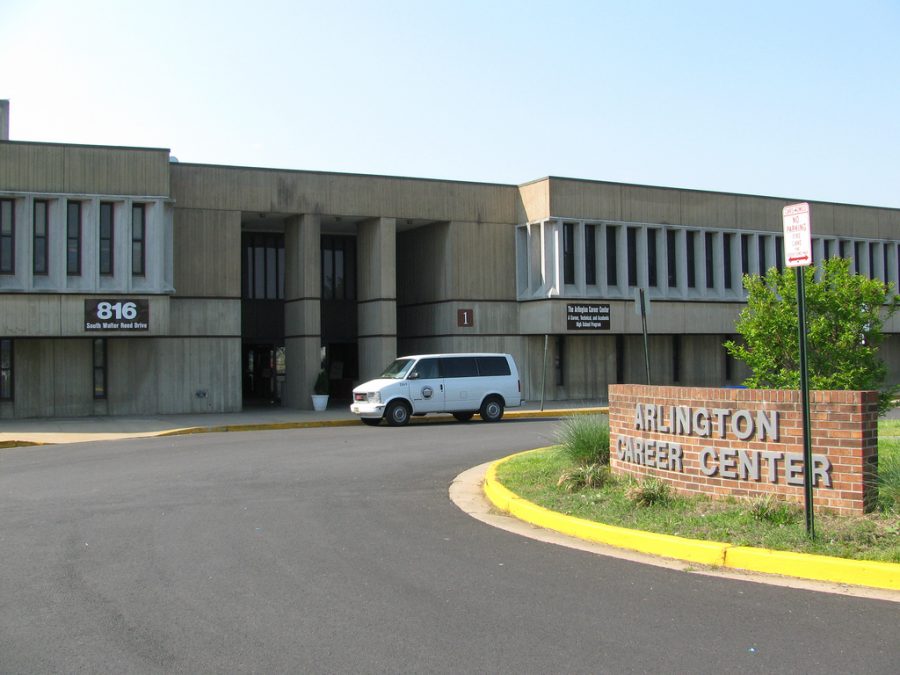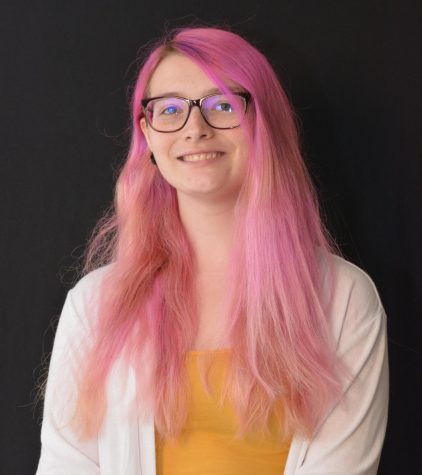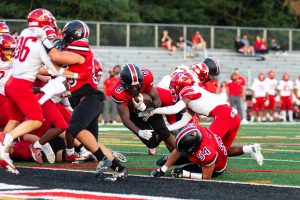What’s the deal with the ACC?
The Arlington Career Center (ACC) as seen from the side of the building (Photo by Mike Lee via Flickr).
October 18, 2018
When my parents attended George Mason High School, there was an auto shop class. It no longer exists, but the room previously used for it is still in the lower levels of the building, now used as storage. Reinstating it might seem unlikely. Yet with recent developments in the ACC, the chances of a throwback may be improving.
The Arlington Career Center (ACC) is a program in the Arlington County Public School system with a mission to “instill a passion for learning by doing;” this is achieved through the hands-on-style Career and Technical Education (CTE) courses it offers. Students can also earn Dual Enrollment credit for their classes through Northern Virginia Community College, and become certified in their field.
Mason students ride a bus to the ACC every day, go to class, then return to the GMHS campus. Their regular Mason classes work around their ACC ones. This has been the case since the George Mason-ACC relationship was first outlined. As of the 2018-19 academic year, this pattern is no longer universal.
Daniella Nehema-Joy is one of the first students to take Physical Therapy/Sports Medicine on the George Mason campus. The greatest problem Daniella has personally dealt with is the differences between the ACC and GMHS teachers.
“They’ll teach you the ankle first, then they’ll go straight to the arm,” she said, referring to the George Mason Sports Medicine curriculum.
There are some aspects of Mason Sports Medicine that she appreciates: “The tests aren’t that hard, but you do more activities too. They make it fun enough for you so that you can learn it.”
On the opposite end of the spectrum lies Greyson Smith, a senior taking Digital Animation and Graphic Communications, and Dakota Sakin, who is in Cyber Security. Neither of them have taken ACC courses before.
“Bus rides are pretty fun too, because not many people are on it,” Sakin said.
Greyson completed her thought, “So everyone can basically have their own seat. And my friend just sleeps on me half of the time.”
“We’re learning things we wouldn’t get to learn in a normal classroom, which means better education for colleges to look at. They are fun classes for me and Dakota,” Smith said.
Sakin also said, “I do get exposed to a completely different community of people.”
They agreed their favorite part of the ACC was the opportunity to get out of George Mason for a while. The majority of students at the ACC live in Arlington. When Mason students go there, they rarely know all of their classmates on the first day.
Smith said he sees attending ACC classes as a way to “get into the headspace of going to different classes and meeting different people.”
This is not a perk that Anton Williams, who takes the EMT class, can partake in. According to him, his class “is really small. We only have like seven people.” EMT is a course hosted at George Mason.
All of this raises a question: why are EMT and Sports Medicine at George Mason this year?
Dr. Kevin Clark, the Vice Principal, said, “I don’t know the exact tuition rate, but I believe it’s around $5,000 per student for a yearly course.”
If an estimated 40 Mason students register for an ACC course per year, with a $5,000 per student tuition, that adds up to $200,000 for one year. The school pays students’ tuition, so it’s more cost effective for some CTE courses to be held on the George Mason campus.
Additionally, there has been talk of placing a full high school in the ACC building. If this were to happen, it would be harder for Mason students to get seats in ACC classes. The FCCPS administration has been strengthening George Mason’s CTE program in preparation.
According to Dr. Clark, this situation was one of the reasons George Mason’s Television and Media Production class was formed. EMT and Sports Medicine, like TV-Media, were brought to George Mason because of their relatively high Mason student enrollments.
Williams commented that his EMT class consisted of around seven students. The first year TV-Media was offered, it had about as many. In the 2018-19 academic year, it has over 30.
“I think a take-away that I always try to make clear is that we have a lot of CTE options here at George Mason, and we also are lucky to have an arrangement with the Career Center to give kids the options that they wouldn’t necessarily have here,” said Dr. Clark.









